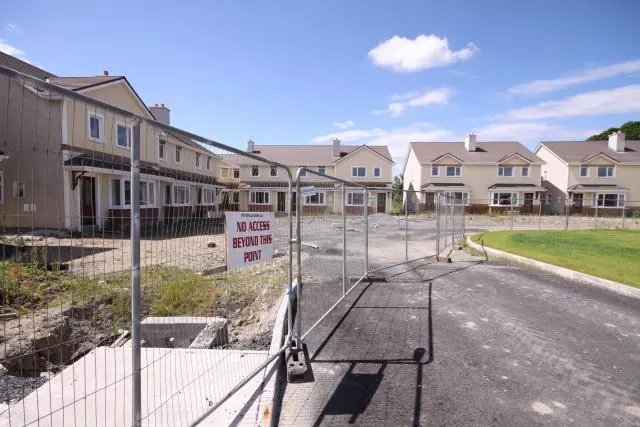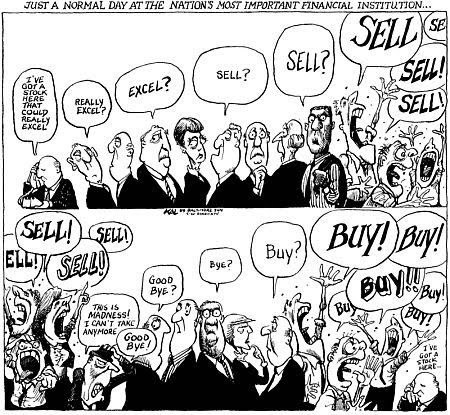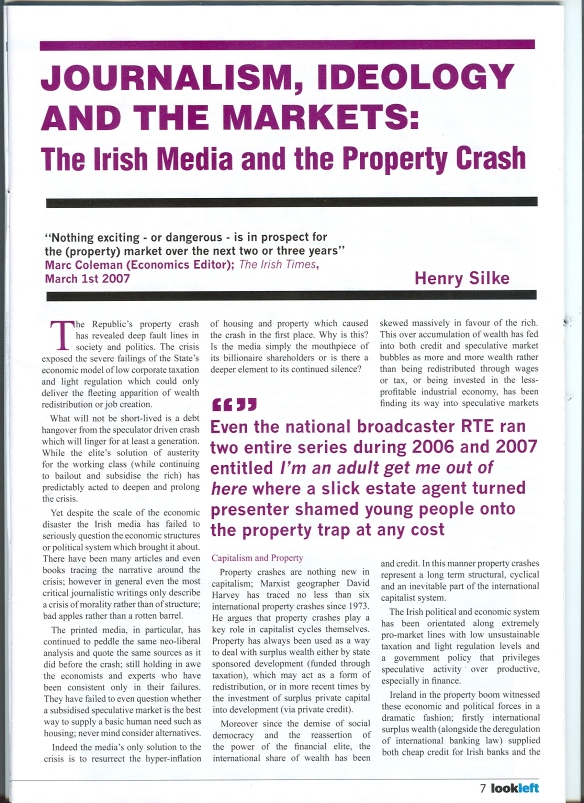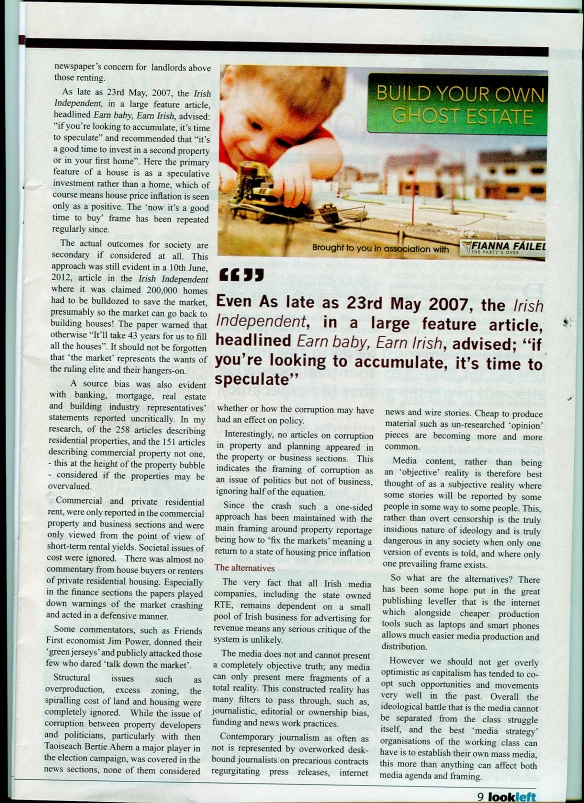The “Great Western Crisis” starting in 2008 has reinvigorated much debate on capitalist crises and causation, Marxist scholars have long debated crisis theory falling into a number of major theoretical positions, at a crude level they can be divided into three (sometimes overlapping) major positions: that is the theories of financialisation, overproduction/underconsumption, and the tendency of the rate of profit to decline. This paper discusses the role of communications and the media in capitalist crises drawing from the literature of both crisis theory and communications theory to investigate the relationship. The paper discusses the role of communications and the media on two levels, firstly on a functionalist level, that is how communication tools and channels play a role in the dissemination of information and secondly on an ideological level of how media can play a role in normalising market and class relations including support for elite political policies. The paper returns to the concept of base and superstructure noting a strong dialectical relationship between economic base and media and communications superstructure that can be found in trends of media concentration, media crisis and media work practices. The paper also discusses the dialectical relationship between media, markets and the wider economy….

Photo Ireland After NAMA https://irelandafternama.files.wordpress.com/2009/12/ghost-estate.jpg
…As discussed in Marxist literature, the broader economic base including the relations of production have a dialectical relationship with the various superstructures of society (including the state and the media). The tripartite relationships between the state, the media sphere and powerful economic interests may act to reinforce class relations and economic trends including periods of economic crisis. This is at least partially because the media—through ownership, institutional practice, alongside content, agenda setting, and overarching ideologies—tends to act to defend or at least defer critique of the economic and political system it is based on…
…The paper looks at the Irish economic crisis to explore these issues by briefly investigating the Irish Times and Irish Independent (two key political and economic papers in the Irish Republic) treatment of three key points in the downturn: The Irish property market on the run up to the 2007 general election (on the cusp of the crash); the blanket bank guarantee of 2008, where the state effectively guaranteed the debts of the entire Irish banking system in its totality, and finally the introduction of the National Asset Management Agency, a state sponsored bad bank aimed at cleaning up the (then) private banking industry…
…While media effects is a contentious issue amongst academic researchers, the empirical findings informing this paper point to the conclusion that that overall blanket positive coverage of the property market, the downplaying of the oncoming crisis and more fundamental deep seated ideology of housing being first and foremost a commodity has had some effect. In May 2007, the lack of critical analysis of either the residential or commercial property markets even on the cusp of a major crash meant that the newspapers at best failed in their normative watchdog role and left society and state ill prepared to deal with the outcomes. At worst, the papers could be considered to have been the ideological mouthpiece of the property industries, that is as uncritical “in-house” journals that privileged and pushed policies beneficial to the narrow economic interests of property developers, financiers, speculators, landlords and estate agents. The papers even if they were unaware of their obvious bias towards industry actors seem to have been so blinded by neo-liberal ideological assumptions that the concept of market “self-regulation” was above question.
The newspapers dependence on sourcing from the property industries coupled with a close economic relationship to the industry poses obvious questions around impartiality and independence, questions that neither newspaper group have sufficiently answered since the crash. Overall it is very likely that the coverage of housing in 2007 contributed to the housing bubble itself, the newspapers highly ideological defence of the market at a time of both heightened awareness and a critical juncture in the political cycle may have acted to reassure buyers and speculators, moreover the newspapers concentration of attention on stamp duty reform rather than key structural issues underlined assumptions of “market self-regulation” and that all would return to “normal” post political “interference” on the market; again acting to reassure market actors that the “normality” of bubble economics would continue. Moreover the newspapers framing and promotion of stamp duty reform in 2007 helped push the policy to the top of the agenda and see its eventual realisation. Stamp duty of course proved to be a red herring as the policy of abolition was enacted and did not prevent the crash. The view that the print media elongated the property bubble is supported by Julien Mercille’s (2013) research which also found a hugely favourable view of the property market before 2008 that he maintained sustained the rise in house prices…
…It could be argued that now with the onset of a severe housing crisis alongside the “tsunami of homelessness” (RTE News 2014) we are reaping the fruits of a non-critical media sphere. The coverage of housing throughout the crisis seems to have remained wedded to the market with the assumption that only private developers and private markets can supply housing leading therefore to discussion of how to best remove “market barriers” for the benefit of the aforementioned actors (much like 2007); the basic questions around how satisfactory housing policies may be achieved have rarely been discussed outside these parameters. Likewise, the newspapers treatment and framing of other political policies such as the blanket guarantee and NAMA most likely had some affect. There were some exceptions to this, in particular in some opinion pieces. However, the key trends and frames point to a “captured press”, that is, a press in service of a narrow class based interest. The Irish crisis with the fundamentally important role of the print media therefore acts as an exemplary case study of the base-superstructure relationship between the mass media and the market economy. The Irish experience concurs with much critical theory on the role of mass media in capitalist society in terms of economics, power and politics and seems to verify the long suspected role of the media as a structurally important part of the modern capitalist state rather than an objective “watchdog” holding truth to power…

Photo: thejournal.ie http://www.thejournal.ie/families-protest-homelessness-1443594-May2014/
…The links between super-structure and base are of long standing interest in Marxism; that is the dialectical and reflexive relationships between the economic base, economic actors, class relations and the superstructure of the state and various aspects of civil society. Two key elements of the superstructure are institutional political processes and institutional media processes. There are many other elements of the superstructure such as education, religion and various state and cultural organisations, however media and politics are two important elements of the superstructure coming from both state and civil society (Gramsci 1971/2003), and it would seem two of the more overtly political elements in the structures of power, and most importantly they represent two elements where cracks of agency may just exist.
Likewise in the wider base both media and communications play an indispensable role in the commodity circuit. This paper proposes a move towards a Marxist crisis theory of communications that would attempt to link the various aspects of the base-superstructure relationship in a holistic fashion. It is important to state that the relationship between ideological, institutional and material factors should not be considered as artificially separate spheres but rather as overlapping parts of a totality, which act to influence each other, moreover, all of which are “born into” particular historical and social structures. We make our own history but not in the circumstances of our own choosing. Likewise, while we have agency over our ideas they cannot be separated from pre-existing ideological structures. The base-superstructure concept is a tool, therefore, that allows us to attempt to deconstruct various elements of society at work and investigate their influences over other elements. The base or material factor generally is key as it is upon the material structures of society and economy that the political and ideological structures rest; however as discussed above there are periods when the superstructural elements can be more influential and this subjective element liberates us from an overly deterministic outlook and allows at least some political agency.
The full paper is available here











